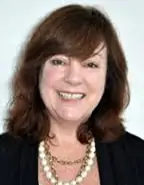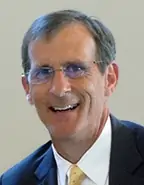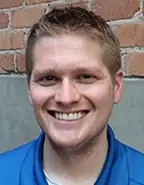

Speakers include Andrew Wheeler, Administrator, U.S. Environmental Protection Agency discussing regulatory policy about the environment, energy, and resources. SCS a proud sponsor looks forward to seeing you there!
A few of the topics of this year’s conference will include water law, brownfields, public service, fracking, enforcement, grid resiliency, PFAS, mineral exploration, and more, even the environmental implications of the new cannabis industry.
Dan Sola, a Hydrogeologist and Project Director at SCS Engineers, chats with attorney Shell Bleiweiss on expert witness testimony. In a rare article, Mr. Sola, an expert witness for environmental issues, tells his story of what it took to become a successful and sought after witness, while Mr. Bleiweiss answers from the attorney’s perspective.
… That’s expert testimony, and that’s why I love it. Everything you have ever said or written is on the line. It is a battle of intellect and wits. The rules of the game are hundreds of years old and amount to a philosophical discourse on the nature of truth. It is a language where everyday meanings overlap with esoteric jargon. It is a highly civilized conversation among oath-bound professionals wanting nothing more than for the other to fail. – Dan Sola. EWRG 2019 article.
Daniel Sola, PG of SCS EngineersSola’s areas of expertise include soil and groundwater cleanup, hydrogeological evaluation, computer modeling, hazardous waste regulations, human and ecological risk assessment, expert witness and public testimony, and environmental review.
If your facility is subject to Process Safety Management and Risk Management Plan regulations, or even if you are a mom and pop grocery store, during the life of your business you’ll experience organizational change. William Lape, of SCS Engineers, writes about how we need to consider the impacts on a facility’s PSM/RMP or ARM programs and on the operation of the ammonia refrigeration system itself.
Published in the RETA Breeze, Managing Organizational Change, How It Impacts Your Ammonia Refrigeration System
A well-sited transfer station could possibly save millions a year in operation costs, but it’s nearly impossible to find a location with every desirable checklist item. Project developers and one municipality share which priorities tend to matter the most and how to satisfy as many as possible, whether it is accessibility, traffic considerations, zoning, among others.
“There has been an uptick in construction of transfer stations in the past several years. Governments want to have facilities in their community for convenience,” says Michael Kalish, vice president of SCS Engineers.
Easy access is key.
“Haulers want to collect material quickly and easily to get rid of it and get back on the road. Otherwise, it costs a lot of money and time,” says Kalish.
Read the article How to Resourcefully Site a Transfer Station.
Learn how four municipalities are finding ways to lower their operational costs to balance the rising cost of recycling.
Three distinguished recycling experts describe how cities from Kirkland, Washington to Oklahoma City to Virginia Beach and Chesapeake have taken action to lower their operational costs, offsetting the cost of recycling. Each city takes a different approach, but all are using sound strategies to balance the books successfully and sustainably.



APWA Click-Listen-Learn event details and registration – March 14
11:00 am Eastern | 10:00 am Central | 9:00 am Mountain | 8:00 am Pacific
Participants will learn:
Participants may earn CEU credit for attending during the Test Your Knowledge portion of the program evaluation.
APWA encourages group participation and follows up as part of their program to Continue the Conversation promoting a deeper understanding of how these solutions relate directly to your responsibilities, agency or department, and city.
Free to all APWA Members | Fee for others is $99
Stormwater management at landfills is changing as owners/operators are adapting their operating plans and designs to minimize the risks that come with heavier rainfall, and severe storm conditions. Landfill engineers are “overdesigning,” in regions hard hit in recent years by severe weather, and not designing for what is labeled as a statistically probable 25-year-storm.
Operations and maintenance are also preparing for changing conditions. William Mojica, Republic Services Director of Environmental Compliance is quoted in this article saying “It’s understanding the facility’s lifecycle, what best management practices (BMPs) are required and anticipating what may come.”
Jonathan Meronek, of SCS Engineers, notes similar strategies are being explored or employed along the U.S. coastlines including designing retention facilities to handle much larger storms.
With the number of LFG monitoring technologies out there, it can be difficult for operators to distinguish which is the best fit. The authors, Pat Sullivan and John Henkelman of Understanding Landfill Gas Monitoring Techniques, do just that, help readers find the approach that works best for their landfill monitoring needs.
Methane can be monitored above the surface of the landfill as a gauge of potential emissions or can be directly measured using techniques that test for the rate or flux of emissions. The above-surface monitoring techniques for gauging potential emissions include surface emission monitoring, ground-based or low-altitude imaging and satellite and aerial imaging.
Landfill methane measurement is the direct measurement of methane emissions from landfills. Direct measurement of methane is more expensive than surface emission monitoring. Four ways to measure landfill methane directly are flux chamber testing, plume measurement, micrometeorological methods, and dispersion modeling.
An aggressive carbon abatement goal often referred to as deep decarbonization, requires systemic changes to the energy economy. The scale and complexity of these projects are enormous, but achievable in our children’s lifetime. Legal Pathways recently published a legal toolkit Legal Pathways to Deep Decarbonization in the United States containing key recommendations and information from its larger publication to be released later this year. Both are a treasure trove for public and private decision-makers who desire pathways to a smaller carbon footprint.
The slimmer version works as a legal guide for businesses and municipalities interested in reducing greenhouse gas (GHG) emissions in the U.S. While each entity may draw on some, but not all, of the publication, it is a significant resource for public and private decision-makers who desire, or are working toward meeting stricter regulatory policies.
The authors identify all the legal options for enabling the U.S. to start addressing a monumental environmental challenge. Decision-makers can use combinations of resources to achieve their desired goals by employing these legal tools.
Thirty-four chapters cover energy efficiency, conservation, and fuel switching; electricity decarbonization; fuel decarbonization; carbon capture and negative emissions; non-carbon dioxide climate pollutants, and a variety of crosscutting issues.1 Each topic area identifies the main legal issues; then covers the options involving federal, state, and local laws.
With enough detail for readers to comprehend pathways best suited for them, the book is written for those who do not have legal or environmental engineering backgrounds. The authors include options even if they are not politically realistic now, recognizing that some may have value over time by becoming a legal pathway.
Notes and Citations
1 “Legal Pathways to Deep Decarbonization in the United States,” by M. Gerrard and J. Dernbach, Editors, 2019
Learn how four municipalities are finding ways to lower their operational costs to balance the rising cost of recycling.
Three distinguished recycling experts describe how cities from Kirkland, Washington to Oklahoma City to Virginia Beach and Chesapeake have taken action to lower their operational costs, offsetting the cost of recycling. Each city takes a slightly different approach, but all are using the same strategies to balance the books successfully and sustainably.



APWA Click-Listen-Learn event details and registration – March 14
11:00 am Eastern | 10:00 am Central | 9:00 am Mountain | 8:00 am Pacific
Participants will learn:
Participants may earn CEU credit for attending during the Test Your Knowledge portion of the program evaluation.
APWA encourages group participation and follows up as part of their program to Continue the Conversation promoting a deeper understanding of how these solutions relate directly to your responsibilities, agency or department, and city.
Free to all APWA Members | Fee for others is $99
The purpose of the Quaternary Geology of Calumet and Manitowoc Counties, Wisconsin report is to provide an interpretation of the distribution and history of glacial deposits and a map showing their distribution.
This report should be useful for planning and development agencies in making land-use decisions, and to the non-metallic mining industry to aid in locating potential sources of aggregate.
The stratigraphic framework presented provides a basis for future detailed groundwater studies in the area. Finally, we hope that naturalists and others interested in the geologic history of the land on which we live will enjoy reading this report.
The report is available for sharing and downloading from the Wisconsin Geological & Natural History Survey.
We hope you find it both interesting and valuable. For geological surveys and information in other states, please contact us.